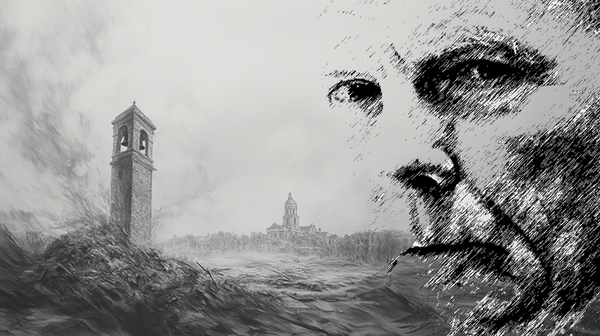Naperville native Bob Odenkirk sketches a showbiz life in memoir
Perseverance with a heavy dose of luck has propelled Bob Odenkirk’s ascent from fringe sketch comic to fringe leading man.


By DOUGLASS K. DANIEL | Associated Press
Perseverance with a heavy dose of luck has propelled Bob Odenkirk’s ascent from fringe sketch comic (HBO’s “Mr. Show”) to fringe leading man (AMC’s “Better Call Saul”). While that may not seem a long trip, his mainstream pit stops as a writer for “Saturday Night Live” and as an actor in movies like “Little Women” and “The Post” provide sufficiently familiar mileposts for everyone to enjoy his amusing showbiz memoir.
Odenkirk’s journey to semi-stardom seemed to follow the arc of a sketch: Small-town guy in the big city pinballs between minor successes and disappointments, hits high notes with hijinks, then delivers the twist of becoming a serious actor. Along the way, he surveys America’s comedy landscape over the last five decades from the outside in.
Growing up in middling Naperville, Illinois, Odenkirk was the jokester in a large family dominated, then deserted, much to his relief, by his father. Greatly inspired by those supremely silly Brits of “Monty Python’s Flying Circus,” he left college early to rattle around Chicago working odd jobs, continuously writing sketch and stand-up ideas, attending improv theater groups, and earning a few bucks at dive-bars telling jokes.
He came of age during what he calls “The Stand-Up Boom” in which opportunities abounded but were also constrained. Observational comedy, he says, was “what the mob clamored for, and if you were anything but that exact thing … Get outta town, ya jerk!” His preference for less structured, less predictable humor was at odds with those expectations. Still, improv connections helped him reach TV’s sketch Olympus, “Saturday Night Live.” His best-remembered bit featured a motivational speaker, played by Chris Farley, who “lives in a van down by the river.”
But the heights had their lows, and in his few years as an “SNL” writer Odenkirk could not shake feeling the show’s original integrity had been lost. Switching coasts, he discovered in Los Angeles a new vein of stand-up, “alternative comedy,” defined by his later sketch partner David Cross as “comedy without the cadence.”
Together, Odenkirk and Cross accomplished their mutual goal, a trip to “the fringe of the fringe,” with their low-budget sketch series, “Mr. Show” (1995-98), which Rolling Stone dubbed “an American Monty Python.” After four seasons and a black market VHS audience, “Mr. Show” achieved cult status via impressive DVD sales.
During a decade in “development heck” Odenkirk occasionally worked as a character actor. Ironically, his career bloomed when he was offered the role of shady lawyer Saul Goodman in the gritty drug-drama “Breaking Bad.” In his first scene, Odenkirk nailed the character so completely that a crew member blurted, “Can I have a job on the spinoff?”
Only in Hollywood could an offhand joke come true. “Better Call Saul” has been nominated for the best drama series Emmy each of its five seasons with Odenkirk nominated four times as best dramatic actor. Season six debuts this spring.
Then came “Nobody” (2021), an ultra-violent revenge flick in which Odenkirk kills scores of bad guys in a choreographed bloodfest. Is it an homage to action films or a parody? True to his best “Mr. Show” instincts, Odenkirk plays it straight to blur the line.
The challenge facing “Comedy Comedy Comedy Drama” is telling a compelling story about telling jokes when the biggest laughs are in the work, not about the working. But Odenkirk’s chummy tone succeeds in bringing us into his showbiz dream: being one of “a bunch of funny people goofing off, professionally.”
Who says goof-offs can’t be serious, too?

The Chicago Journal needs your support.
At just $20/year, your subscription not only helps us grow, it helps maintain our commitment to independent publishing.
Douglass K. Daniel is the author of “Anne Bancroft: A Life” (University Press of Kentucky)





